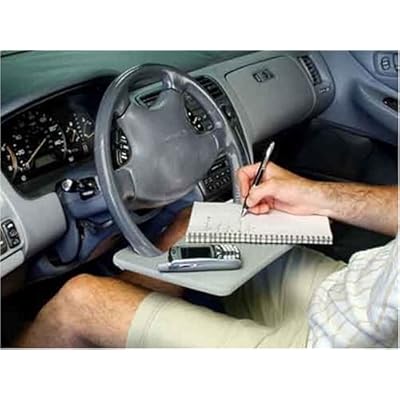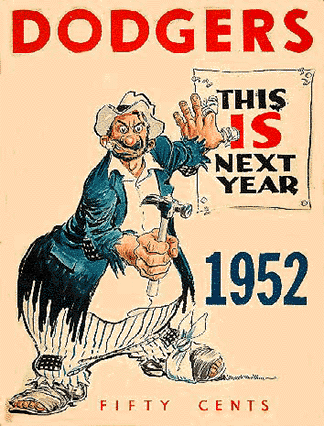How's that stimulus working out for you?
According to the White House, the $787 billion stimulus package created or saved somewhere between 500,000 and a million jobs, depending on how you count them -- and maybe depending on which day of the week you ask.
There doesn't seem to be a lot of agreement there. Michigan is one state that was really nailed in the economic meltdown, and even when times were good it wasn't any great shakes there. But that state received $5.2 billion in federal stimulus. Now we're told that 22,500 were "created or saved." It doesn't take a math genius to figure out that our taxpayers forked out $231,000 for every job created or saved in Michigan. Taking that number even further, assuming the phantom "job created" paid $20,000 per year -- meaning not much of a job -- that $231,000 will pay for 11.5 years worth of that salary if the payment was made direct instead of going through the many layers and black holes of bureaucracy.
So far, $160 billion in stimulus money has been spent. From that, the most-cited figure is 640,000 jobs created or saved nationwide. That stacks up to about $246,000 per job. The Associated Press cautions against using simple math to figure out cost-per-job, as there's a lot more to the picture than that -- the asphalt the employee's going to push around, the worker's benefits. But this is still money spent, no matter which pocket it's going into.
Meanwhile, what about these 640,000 jobs? The White House doesn't differentiate whether these jobs were saved (i.e. maintaining the status quo) or actually created. It also doesn't tell whether these jobs were mostly in the private or public sector, although we have a few indications. A little more than half -- 325,000 -- were in education, purely public sector.
The smart money says that if you want one of those stimulus jobs, work for the government.
As I go over this shopping list of stimulus projects, I keep thinking of the old Works Progress Administration (WPA), from the weirdly wired brain of Franklin D. Roosevelt during the Great Depression. Most of those WPA projects were more boondoggle than anything else -- curbs in the middle of nowhere, things like that. To be sure, some folks did actually find WPA work (great market for shovel-leaners back in those days). But this stimulus package seems to have precious little boon but a whole lot of doggle.
According to
Sen. Tom Coburn's (R-Oklahoma) office, here's where
some of the stimulus money went, and again this is stuff I just can't make up:
- $100,000 for a program in Maryland to keep tabs on how often doctors and nurses wash their hands at hospitals.
- $300,000 for a GPS-equipped helicopter to hunt for radioactive rabbit turds at the Hanford nuclear reservation in Washington state.
- $30 million for a spring training baseball complex for the Arizona Diamondbacks and Colorado Rockies.
- $11 million for Microsoft to build a bridge connecting its two headquarters campuses in Redmond, Wash., which are separated by a highway. Somehow I'd think Bill Gates would be able to afford this on his own, without government help.
- $430,000 to repair a bridge in Iowa County, Wis., that carries 10 or fewer cars per day.
- $800,000 for the John Murtha Airport in Johnstown, Pa., serving about 20 passengers per day, to build a backup runway.
- $219,000 for Syracuse University to study the sex lives of freshmen women. I can't see much in the way of jobs coming from that, though you can say that's definitely stimulating.
- $2.3 million for the U.S. Forest Service to rear large numbers of arthropods, including the Asian longhorned beetle, the nun moth and the woolly adelgid.
- $3.4 million for a 13-foot tunnel for turtles and other wildlife attempting to cross U.S. 27 in Lake Jackson, Fla.
- $1.15 million to install a guardrail for a persistently dry lake bed in Guymon, Okla.
- $9.38 million to renovate a century-old train depot in Lancaster County, Pa., that has not been used for three decades.
- $2.5 million in stimulus checks sent to the deceased. And why not? In some parts of the country being dead does not affect your right to vote either.
- $6 million for a snow-making facility in Duluth, Minn. Ask anyone in that state -- they can get all the snow anyone needs for nothing.
- $173,834 to weatherize eight pickup trucks in Madison County, Ill. Do the math here. That's $21,729 per truck. Shoot, you can almost buy a new one for that.
- $20,000 for a fish sperm freezer at the Gavins Point National Fish Hatchery in South Dakota.
- $380,000 to spay and neuter pets in Wichita, Kan.
- I love this one: $300 apiece for thousands of signs at road construction sites across the country announcing that the projects are funded by stimulus money.
- $1.5 million for a fence to block would-be jumpers from leaping off the All-American Bridge in Akron, Ohio.
- $1 million to study the health effects of environmentally friendly public housing on 300 people in Chicago.
- $356,000 for Indiana University to study childhood comprehension of foreign accents compared with native speech.
- $983,952 for street beautification in Ann Arbor, Mich., including decorative lighting, trees, benches and bike paths. Well, that's part of the $5.2 billion I mentioned, and I'm curious how many jobs came from that.
- $148,438 for Washington State University to analyze the use of marijuana in conjunction with medications like morphine. Again, I know a lot of students who would do that research for nothing.
- $462,000 to purchase 22 concrete toilets for use in the Mark Twain National Forest in Missouri.
- $3.1 million to transform a canal barge into a floating museum that will travel the Erie Canal in New York state.
- $1.3 million on government arts jobs in Maine, including $30,000 for basket makers, $20,000 for storytelling and $12,500 for a music festival.
- $71,000 for a hybrid car to be used by student drivers in Colchester, Vt., as well as a plug-in hybrid for town workers decked out with a sign touting the vehicle's energy efficiency.
- $1 million for Portland, Ore., to replace 100 aging bike lockers and build a garage that would house 250 bicycles.
Oh, yes. It's not pork. Pork is what the other legislator, on the other side of the aisle, implements. But you already knew that.
###


 There's always someone on your Christmas shopping list who is guaranteed to stump you. I'm talking about the person who already has everything, right?
There's always someone on your Christmas shopping list who is guaranteed to stump you. I'm talking about the person who already has everything, right?













